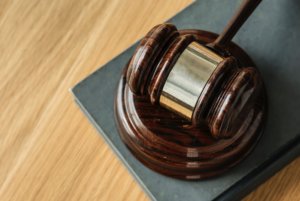Ripple scores major win: Judge orders SEC to explain…a lot
The SEC is ordered to explain, among other things, how the Howie test applies to XRP, what is the status of Ether and Bitcoin, and the sale of XRP as investment contracts.

Judge Sarah Netburn has addressed two pending motions in the SEC v. Ripple lawsuit the same week she granted the SEC’s request to extend the expert discovery deadline to January 14 in a move that surprised a few.
The order regards the individual defendants’ motion to compel the SEC to provide clearer answers to Ripple’s interrogatories, and the SEC’s protective order to relieve it of the obligation to respond to 29,947 separate requests for admission.
“Because the discovery sought overlaps in certain respects, these applications are resolved together. Both
motions are granted in part and denied in part”, Judge Netburn concluded.
“UH-OH. The SEC is going to be forced to admit that there is nothing in any of these contracts that created an expectation of profits by purchasers of XRP. That’s a big problem for the SEC”, attorney Jeremy Hogan commented.
Ripple’s nearly 30,000 requests is theater
For the nearly 30,000 requests for admission, the judge ordered the SEC to respond to the ones seeking to establish the authenticity or genuineness of a document, the ones relating the fair notice defense, and the ones about Ripple’s extra-territorial defense.
The remaining 28,849 requests were regarded as theater: “Despite the Defendants’ protestations that this volume of requests is reasonable and will narrow the issues for trial, it is hard to view this stunt as anything more than theater”.
SEC has much to explain
As to Ripple’s interrogatories on the SEC’s views of the XRP “investment contracts”, Judge Netburn said the SEC’s legal theory is not an excuse to avoid responding to Defendants’ factual inquiry. Nor is it a basis to answer a different question than posed.
The judge has also ordered the SEC to respond to whether Bitcoin and/or Ether are securities within the meaning of Section 2 of the 1933 Securities Exchange Act, although the agency already explained it does not typically determine whether a particular financial instrument is or is not a security.
As to questions regarding XRP and Ripple’s behavior under Howie, “the parties’ conflict over the application of Howey and its progeny does not render Ripple’s interrogatory improper”. The SEC is also compelled to answer.
Judge Netburn, however, denied Chris Larsen’s motion regarding whether “the XRP Ledger was not fully functional before the start of the ongoing securities offering alleged in the Complaint” and when it did become functional, according to the SEC’s views.
The court deemed the interrogatory as too vague and ordered the parties to meet and confer on good faith to further clarify the terms.
The digital asset space lacks clarity. That is nearly unanimous. The SEC v. Ripple lawsuit may help the industry move toward a clearer regulatory framework and will provide precedent for the next enforcement actions and litigations with the SEC.









